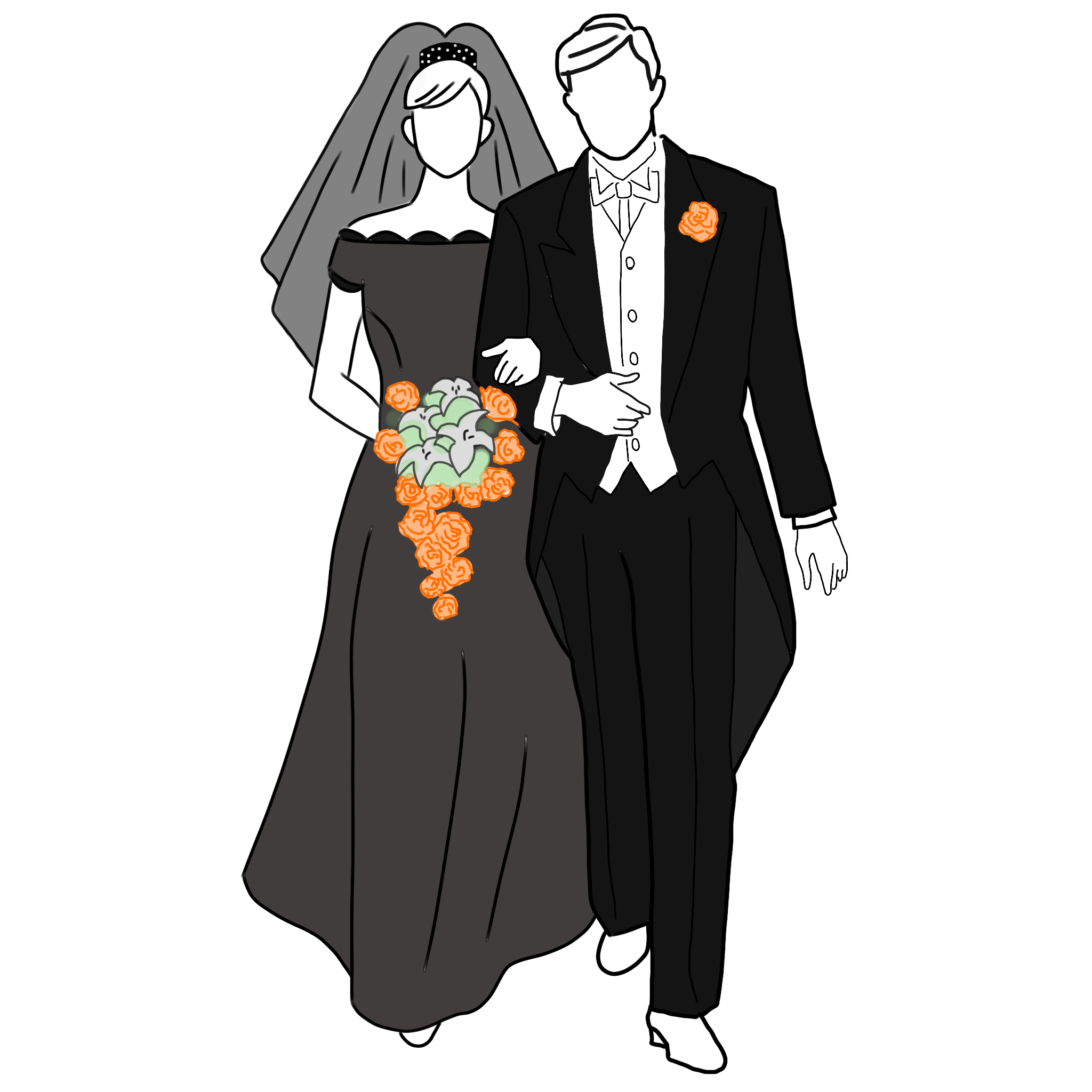After the fourth and final Princeton alumnus (or student) had spoken for the evening, my brother (‘16), acting in his duty as the emcee of the wedding, enlisted the rest of the motley Princeton crew for a photo. The nuptials in question were between my sister (‘18) and her now-husband (‘19). Seats emptied as over a quarter of the wedding got up for the photo. A similar drainage (though a much smaller contingent according to my mother) took place over 30 years ago during my parents’ wedding, both ‘86. The sheer number of guests in attendance who were alumni of the school is not what shocked me. The unbridled joy that wafted from the group got me thinking: I, too, might one day marry someone from the University.
Princeton has a unique knack for drawing people together no matter their spatio-temporal distance from graduation day. What I’ll avoid alluding to is the myth, or reality, that over 50% of Princeton graduates marry other graduates. Whether or not you believe the statistic, I write to you as the offspring of one of those marriages, and the literal witness to another. Having not been present for the union between my parents, I’ve never really confronted my feelings on Princeton couples until the preparations began for my sister’s wedding, long before the eve of September 21st, when I went to Punta Cana for a “bachelorette weekend.” The guest list included the bride and her 10 bridesmaids, eight of whom, myself included, had attended Princeton. Their conversations, cycling between memories of Ivy formals, old college boyfriends, who did what at last reunions and what will be worn at the upcoming ones, made me feel like shit. Is this really how we operate? The non-Princetonian bridesmaids, having nothing to add, spent the majority of the first day and a half awkwardly laughing at the anecdotes they all shared. Princeton felt parasitic, infecting every aspect of your social network, alienating the 20 percent of people in your life who didn’t go there.
But it was in my prerogative to have hope that there was more to life after Princeton. I watched my brother and sister go through studenthood, anxiously awaiting that same future for myself. When the time for applying to college came, my family didn’t push their alma mater on me. Despite their lack of effort and claims to have abated any Princeton talk for the time being, Princeton became an inevitability for me as well. The night I was admitted, fanfare poured in from across the vast alumni network I had at my disposal. The reward for enduring an abstract association to the school for 18 years had presented itself: at least until I got to campus, I could feel like I belonged to the school, and it belonged to me. It also was around this time that things got serious between my sister and the man she would soon marry.
Getting into and going to Princeton are two very different things. As a legacy, there is a heightened tension that lies between having to match one’s inevitable rocky first months here against the years of stories that naturally omit that rockiness. Having overcome that tension, I attended the wedding with an individual understanding of my relationship to Princeton, entirely separate from my family. How the Princeton marriage factors into that relationship still remained to be seen. Standing dead-center amidst members of Great Classes of the 1980s, ‘90s, 20-teens, and ‘20s I confronted the question head-on. Of the ~70 people in the picture, 12 Princeton couples can be counted, some of whom were in attendance at my parents’ wedding 33 years ago. Surrounded by Princeton’s past, I thought back to the feeling from the night of my acceptance, now returning the favor to the newlyweds. The power of this school was undeniable, more so than I’ve felt at Reunions or other alumni-focused events. Princeton is so much more than an ill-recalled memory of four insignificant and at times painfully horrible years. I’m the biological and legal witness to the fact that, after graduation, it stakes a claim on your life, on your present and your future. It forms the basis for my current friend- and relationships, and will almost certainly play a role in any future ones. It’s a place, I think, worth sending my children and grandchildren to, like my family did before me.
So I rescind my initial derision of my sister and her friends for looking into their past (though I still maintain my abhorrence at some of the things that passed for “jokes” that weekend). Princeton didn’t end when they graduated six and a half years ago. It underscores their daily lives. It binds them together not just with each other, but with their partners, families, and the generations of people before and ahead of them who are part of Princeton’s history. “Legacy” can feel like a dirty word on this campus. Some may be ashamed to admit it, but simply by attending, they’re beginning a legacy themselves. But it doesn’t feel so evil backlit by the joy of a wedding.

Leave a Reply